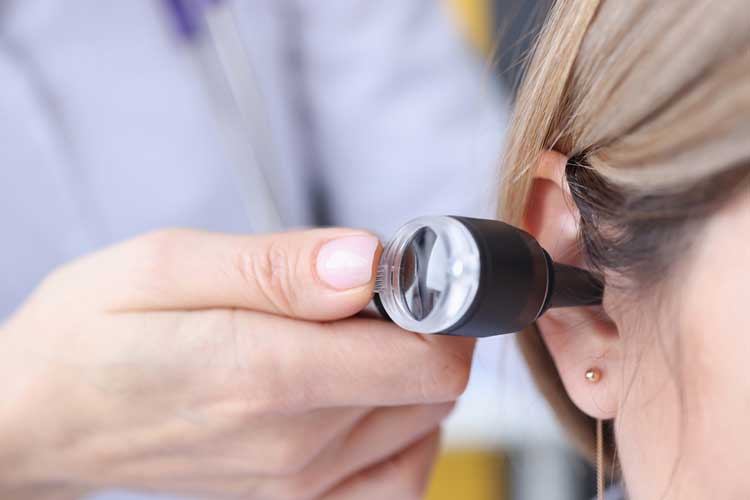Before Buying Any Hearing Aid, Get Evaluated
Last updated November 2024

Suspect you have hearing loss? Because some hearing-aid dispensers sell devices to people who don’t need them, or would be better served by other treatments, rule out treatable medical problems before purchasing. Start by consulting your primary care doc or an ear, nose, and throat specialist (also called an “otolaryngologist”). The right doctor can detect medical causes of hearing loss (such as fluid buildup in the middle ear, disease, or a tumor). Click here for a list of otolaryngologists most often recommended by their peers in Checkbook’s surveys of physicians.
If the physician advises you to get a hearing test, an audiologist or a “hearing instrument specialist” can administer one.
Audiologists have extensive training and usually hold a clinical Doctor of Audiology (Au.D.) degree but may hold a Sc.D. or Ph.D. Audiologists may also be identified by the letters CCC-A (denoting a Certificate of Clinical Competence in Audiology from the American Speech-Language-Hearing Association–ASHA). In addition to administering hearing tests, audiologists can provide complete diagnostic evaluations of hearing loss. Audiologists usually help patients select and purchase hearing aids, too.
Unlike audiologists, hearing instrument specialists don’t have degrees in the field of hearing and aren’t required to get training on ear disorders, diseases, and structural abnormalities. They can voluntarily seek the credential “Board Certified in Hearing Instrument Sciences,” often indicated by the letters “NBC-HIS.” To receive this certification, applicants must have two years of experience selling hearing aids and pass the National Competency Exam.
If you think you might have mild hearing loss (see the box on the left for some signs), or aren’t sure about the severity of your loss, consider starting with an at-home test. The National Hearing Test program, a nonprofit organization funded in part by the National Institutes of Health, offers one administered via phone (866-217-0857) for $8. AARP members can get one free test per year.
If you end up buying hearing aids, have your hearing retested regularly to keep your aids’ settings up to date. How often you have your hearing retested depends on the extent of your loss and other factors; most hearing-aid wearers should be retested at least every other year, but some may need reevaluations every six months.


